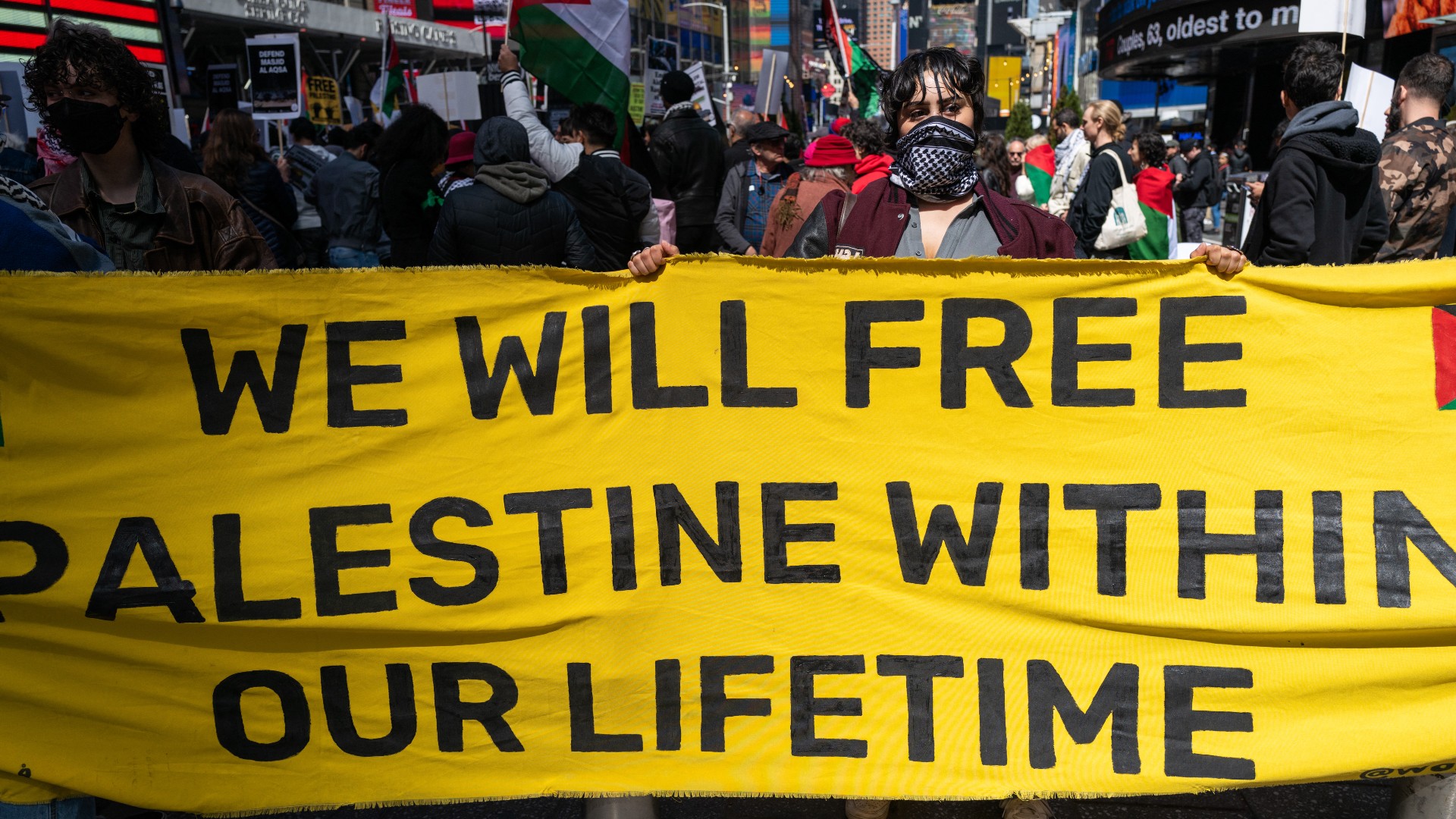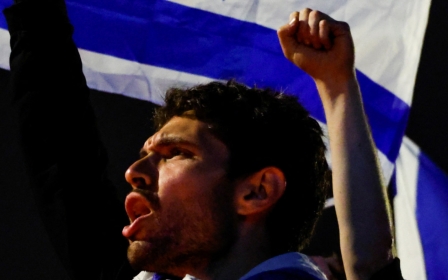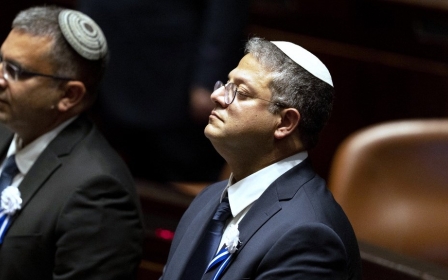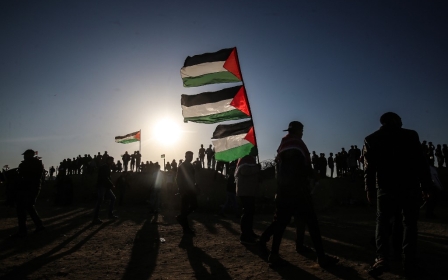Israel: Why a Jewish supremacist state can never win
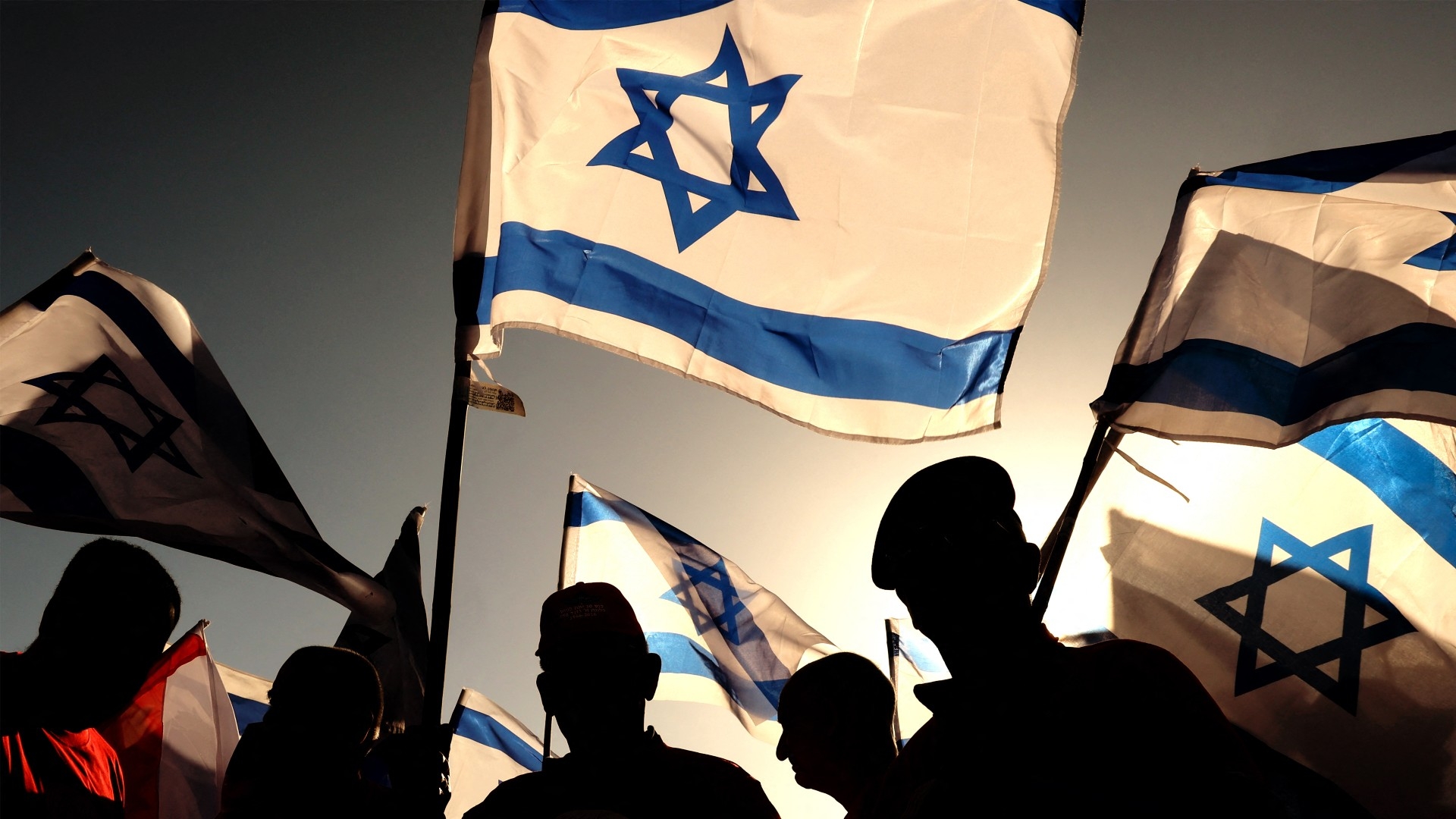
There is a key scene in a two-part BBC documentary, The Holy Land and Us, told in parallel by a British Jew and a British Palestinian narrator, each with his and her personal connections to the events of 1948.
The scene does nothing to further the programme’s aim of placing the two narratives, side by side, on equal footing. Rather it vividly illustrates the asymmetry of the Israeli-Palestinian conflict.
It is when Daniel, one of their guests in this venture, stands on the site of a battle that took place in 1948 in which his father took part. This was when Jewish troops repelled Jordanian forces to control towns near Tel Aviv.
He is moved to tears as he realises his father, who never spoke about these events, risked his life to create Israel.
Daniel did not ask about the 50,000 Palestinians who lost their homes when Jewish forces captured Lod and Ramle or about where he was standing. It was where Jimzu, a Palestinian village, once stood, and of which there is no trace today. The Nakba element of Daniel’s story is only acknowledged in the voice-over.
It's a very revealing scene.
The asymmetry of the notion that two moral narratives are competing in this conflict lies at every level.
While the Palestinians understand, all too well, the nature of the Zionist conquest in 1948, in 1967, and today, Zionists of whatever persuasion have denial hardwired into their souls on the project to establish a Jewish majority state.
At a practical level, Palestinians under occupation speak Hebrew, because many families have been through the prison system, or lived in Jerusalem or as Israeli citizens, and everyone every day goes through an Israeli checkpoint. They devour Israeli news and consume every word of what their occupiers are saying and thinking.
Fewer and fewer Israeli Jews speak Arabic because it is no longer taught in schools. But this is nothing compared to the myths on which the project to establish Israel is founded. Here, the asymmetry balloons.
Israel's founding myths
From the word go the Zionist project denied the existence of indigenous people with rights to their land. Israeli Finance Minister and far-right politician Bezalel Smotrich is not the first to say "there is no such thing as the Palestinians". Golda Meir said it first in 1969.
The Zionist project denied the Nakba, and all the dirty tricks used - the identification and assassination of the village headmen, the poisoning of the wells - to make sure 700,000 Palestinians left and stayed away from their homes.
It took three decades of research to unpick the propaganda that claimed the villagers were told to flee by the advancing Jordanian army. And another four decades before the New Historians revealed the extent of massacres. To this day, not all have been documented.
Every generation of Israeli Jews has worked hard to maintain the myth that a new state was being created in an empty space or to use the classic fake news slogan that Palestine was "a land without people for a people without land".
To this day, few Israeli Jews will utter the word Palestinian. They speak instead of 'the Arabs' as if seven million Palestinians living in their midst will melt away one day into the Arab hinterland.
Needless to say, there is a raging debate about the demographic reality too.
Denial on this scale is not only a function of psychology. Although it is that too. Israel's creation is seen by its builders as a miracle of Jewish history. Denial exists for practical reasons. Because to acknowledge even one element of what happened, and continues to happen every day, is to cast doubt not only on Israel’s past but its future as well.
'Gradualist and accelerated' Zionism
This is not a fixed picture and there are some who speak out.
Yossi Beilin, the former minister, and negotiator of the Oslo Accords said recently that believing Israeli assurances that they would freeze settlement construction was one of the biggest mistakes Palestinian negotiators made.
Zionists of whatever persuasion have denial hardwired into their souls on the project to establish a Jewish majority state
He told Kan 11 News Report: "The Palestinians demanded we freeze all settlements. Rabin said: "We have the government decision 360 from 1992". Whoever looks at this article sees that Israel unilaterally decided to freeze the settlements.
We presented it to the Palestinians and they believed us so they agreed. That was their biggest mistake. They did not demand an explicit clause [in the Oslo Accords] on freezing the settlements because they believed us."
Frankly, this admission comes 30 years too late. But as each day passes and the drums of war beat ever louder, the links become clearer between those who identify themselves as liberals and the supremacists who do care not about what anyone calls them.
The notion of the conflict over Israeli Prime Minister Benjamin Netanyahu’s attempted judicial reforms being between democrats and fascists unravels when it comes to the occupation.
Daniel Levy, president of the US Middle East Project (USMEP), more accurately describes the difference between self-styled liberals and openly supremacist Zionists as between "gradualist and accelerated" Zionism.
"Incrementalism in entrenching dispossession of and control over Palestinians was a tried and tested formula and became the default. But for a growing camp within the Zionist right gradualism appears to be lazy, unambitious, and even risky. Hence the push for Zionist accelerationism," Levy said.
The means to get there are different but the goal is the same.
In Levy’s analysis, the extreme right was frustrated by Israel’s inability to translate its total military and economic dominance into something that looked like a demographic victory, hence the proliferation of settler militias, attacks on the Palestinians, and calls for another Nakba.
"The gradualist camp in practice pursued apartheid but invested heavily in sounding 'reasonable' about security and the absence of a Palestinian partner for peace. The accelerationist camp seems to openly embrace its supremacist apartheid essence," Levy said.
In other words, Israel is a variable-speed project but it remains essentially the same project.
A new uprising model
The same is less true of the Palestinian national cause that experienced a fundamental readjustment when Palestinian citizens of Israel whom Israelis describe as "Israeli Arabs" came out onto the streets of mixed cities in their thousands to protest the repeated storming of Al-Aqsa in May 2021.
Their brief revolt was attacked by settler militias and crushed by a huge police operation which has had many of those who took part in prison to this day.
But the model of that uprising remains to this day. From now on, there will be no Palestinian onlookers as one part of the Palestinian entity is attacked and singled out, but another is spared.
The occupier’s project to divide and rule has faltered.
This much was obvious from the reaction to the video of Israeli soldiers repeatedly and continuously beating unarmed worshippers staying overnight in the Al-Aqsa mosque or to a Palestinian trainee doctor being shot dead by Israeli soldiers and he attempted to defend a fellow worshipper at the gates of Al-Aqsa. That event produced a general strike among Palestinians in Israel.
The repeated storming of Al-Aqsa prompted a barrage of rockets from Lebanon, a gun attack that killed three members of a family of British Jews who had moved to Israel nine years ago from the UK and lived in a West Bank settlement of Efrat and an Italian tourist in Tel Aviv from a car ramming.
At least two of these attacks were individual actions and were seen as unpreventable by the Israeli security forces.
The carrots that Shin Bet uses to defuse popular tensions, such as relaxing restrictions on the entry of Palestinian workers, are inevitably less powerful than the sticks of navigating roadblocks that are engraved on the daily lives of any Palestinian living under occupation.
While the command structure of Israeli forces is becoming more extreme - one of the leading candidates for the job of heading the newly formed National Guard, Avinoam Emunah, is a retired colonel known for encouraging his soldiers to enjoy killing Palestinians - the command structure of the Palestinian resistance is becoming more diffuse, with established groups encouraging, but not ordering still less leading, individual attacks on settlers, troops, and citizens.
A war is coming
While Israel has overwhelming military and security supremacy, the Palestinians display a total determination and commitment to staying put and fighting. This applies to this generation even more than it does to their fathers and grandfathers.
This conflict may not be decided by the side that kills more efficiently and speedily. That contest has long been lost. It may hinge on who has the greater will, the greater endurance, and the greater staying power to see this through to the end.
And this is where the denial of history becomes a huge handicap. And where the side that understands its enemy has an immeasurable advantage.
One way or another, a war is coming. Ben Gvir wants another Nakba. Netanyahu wants another show of force to re-establish deterrence.
He made this all but explicit when he confirmed that his defence minister Galant, with whom he had clashed over the judicial reforms, will stay in place.
"If the Assad regime continues to allow missile and drone attacks from Syrian territory towards Israel, it will pay a heavy price. We do not want a broad campaign and we are doing our best to prevent it, but if we are asked to do so - our enemies will confront the State of Israel, the Israeli army, and the security forces in full force.
This conflict may not be decided by the side that kills more efficiently and speedily. It may hinge on who has the greater endurance
"You already know me; I do not act rashly but firmly and responsibly; we will restore deterrence and repair the damage, it will take time but it will happen," Netanyahu said.
Restoring deterrence is not just code for the bombing of Hezbollah or Hamas in southern Lebanon or Gaza. It's a message to every Palestinian thinking of making his or her act of defiance.
These threats are not new. The tactic that Israel needs to "mow the grass" in Gaza or southern Lebanon or the West Bank every few years to establish a period of quiet is every general’s formula for perpetual conflict.
But it is to misread the situation profoundly to think this will work today in quite the same way as it has in the past. This time such force may not be a tap that Netanyahu can turn on or off at will. Such a war may not be over in a matter of days. It will be deeper, longer, and more profound in its consequence. Israelis will come under fire from within and without.
Palestinians will suffer grievously under attack from columns of settlers. But one wing of the collective Palestinian prison will not watch obediently while the other wing is in flames. It may not be geographically confined.
The quiet Israel has achieved along its eastern border with Jordan could shatter. The Gulf states, so keen to invest in Israel over the heads of the Palestinians, might melt away in the face of the reaction from the Arab street.
A conflict that started as one over territory could easily morph into a conflict over religion. Any Israeli thinking of the future of their children should think long and hard about what military victory looks like.
It will not be the same place.
A supremacist Israel, with the likes of Ben Gvir in the driving seat, may strive to impose total sovereignty from the river to the sea, but it will never achieve total control.
Without it, a Jewish state conceived in this way can never win.
The views expressed in this article belong to the author and do not necessarily reflect the editorial policy of Middle East Eye.
This article is available in French on Middle East Eye French edition.
Middle East Eye propose une couverture et une analyse indépendantes et incomparables du Moyen-Orient, de l’Afrique du Nord et d’autres régions du monde. Pour en savoir plus sur la reprise de ce contenu et les frais qui s’appliquent, veuillez remplir ce formulaire [en anglais]. Pour en savoir plus sur MEE, cliquez ici [en anglais].





